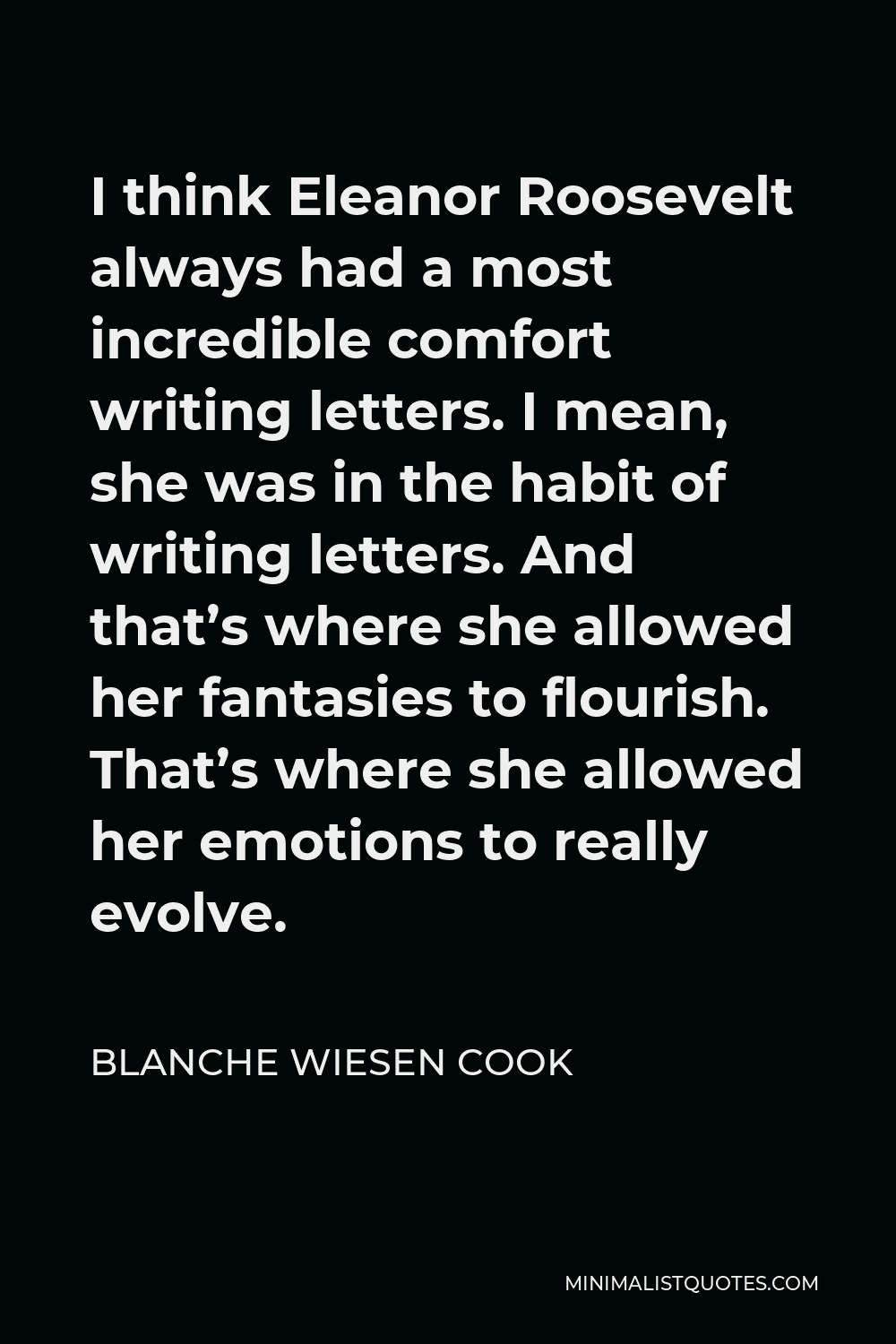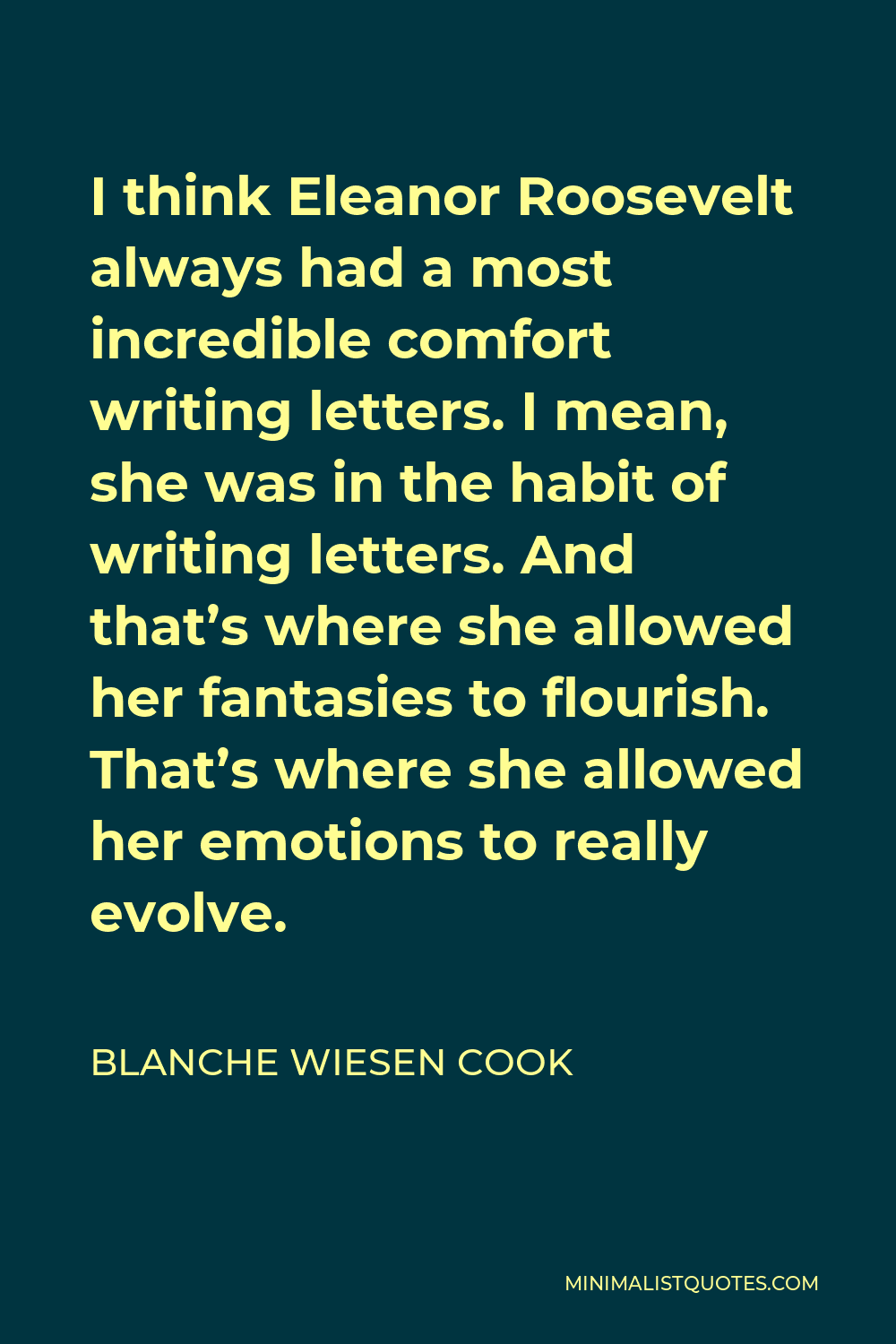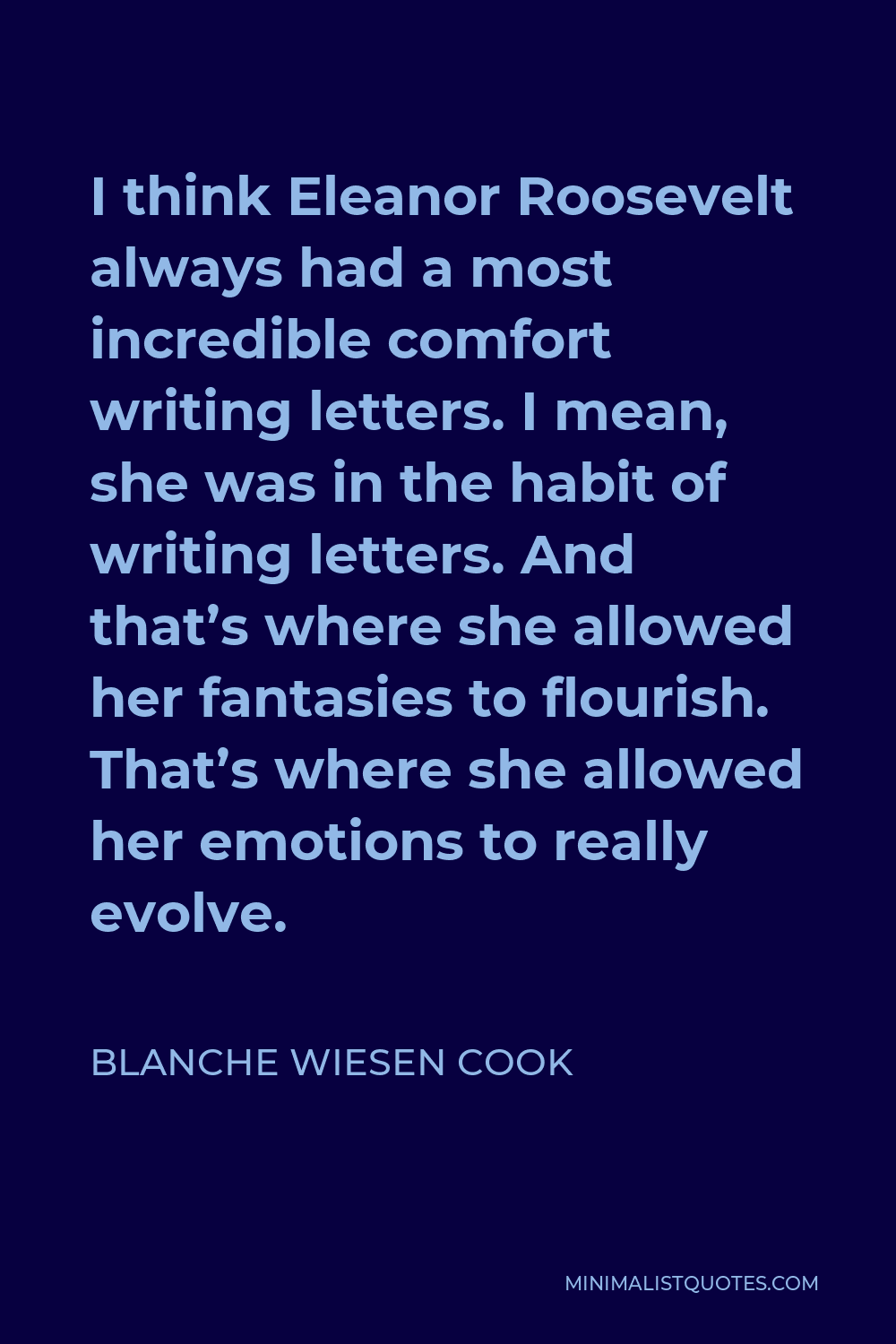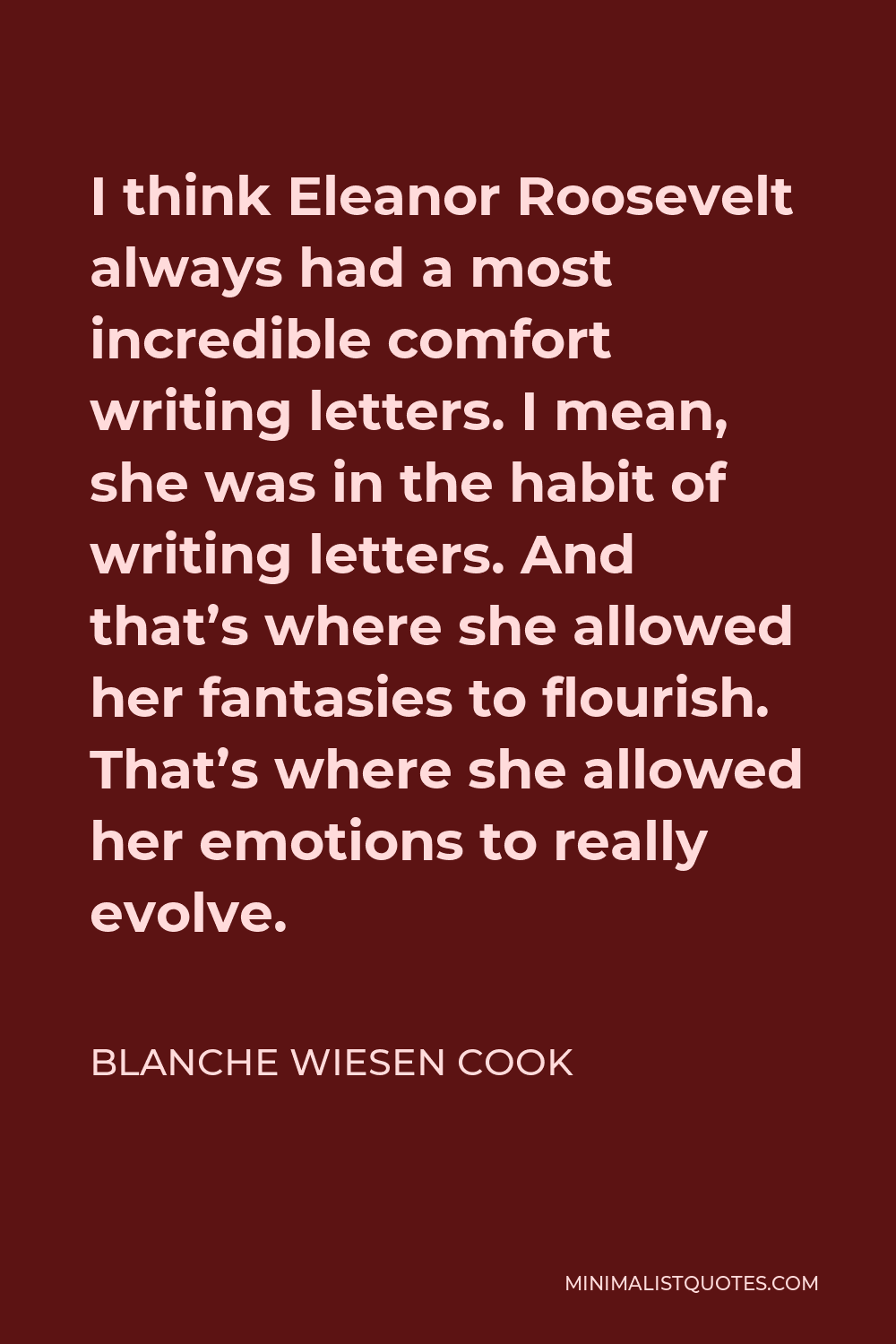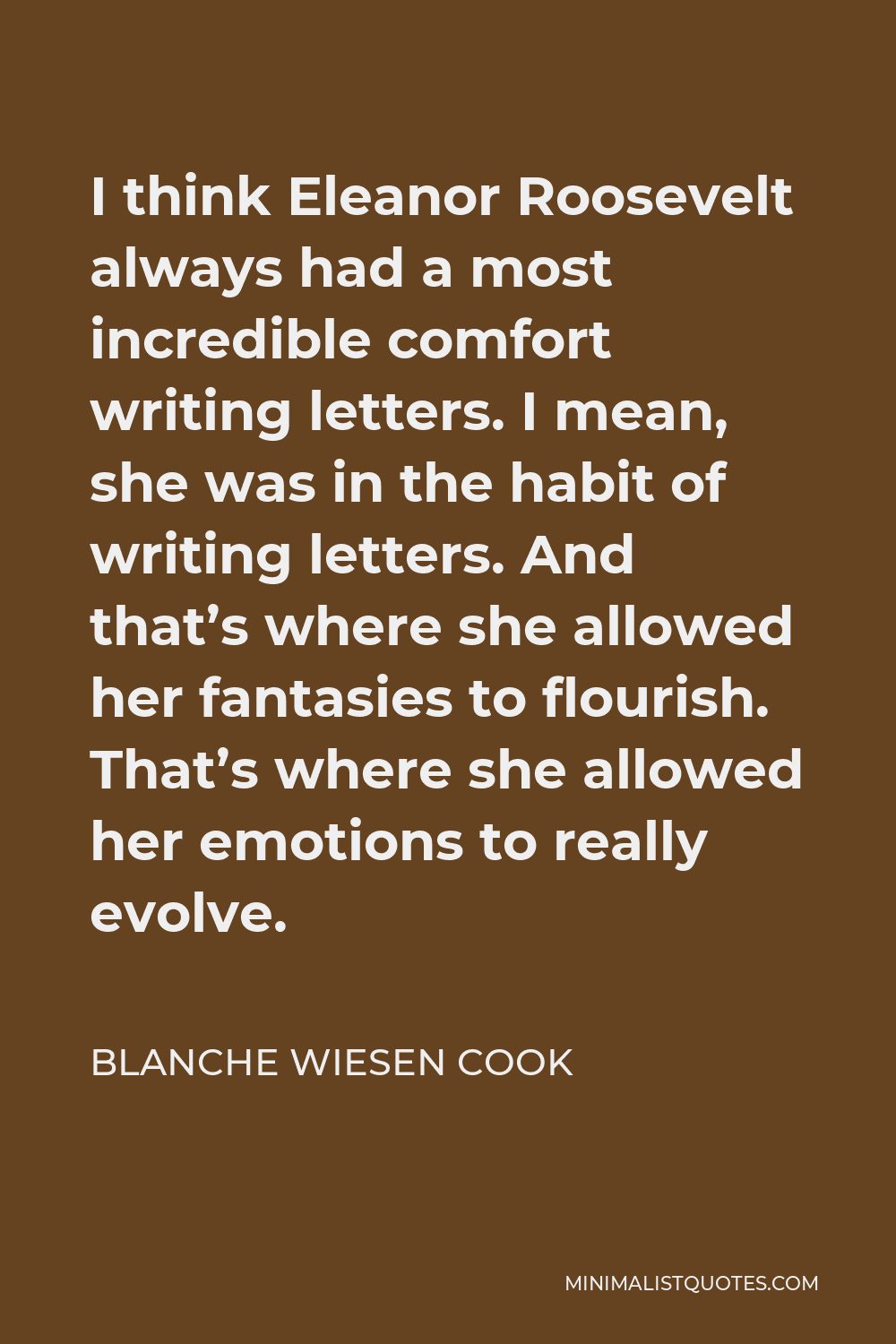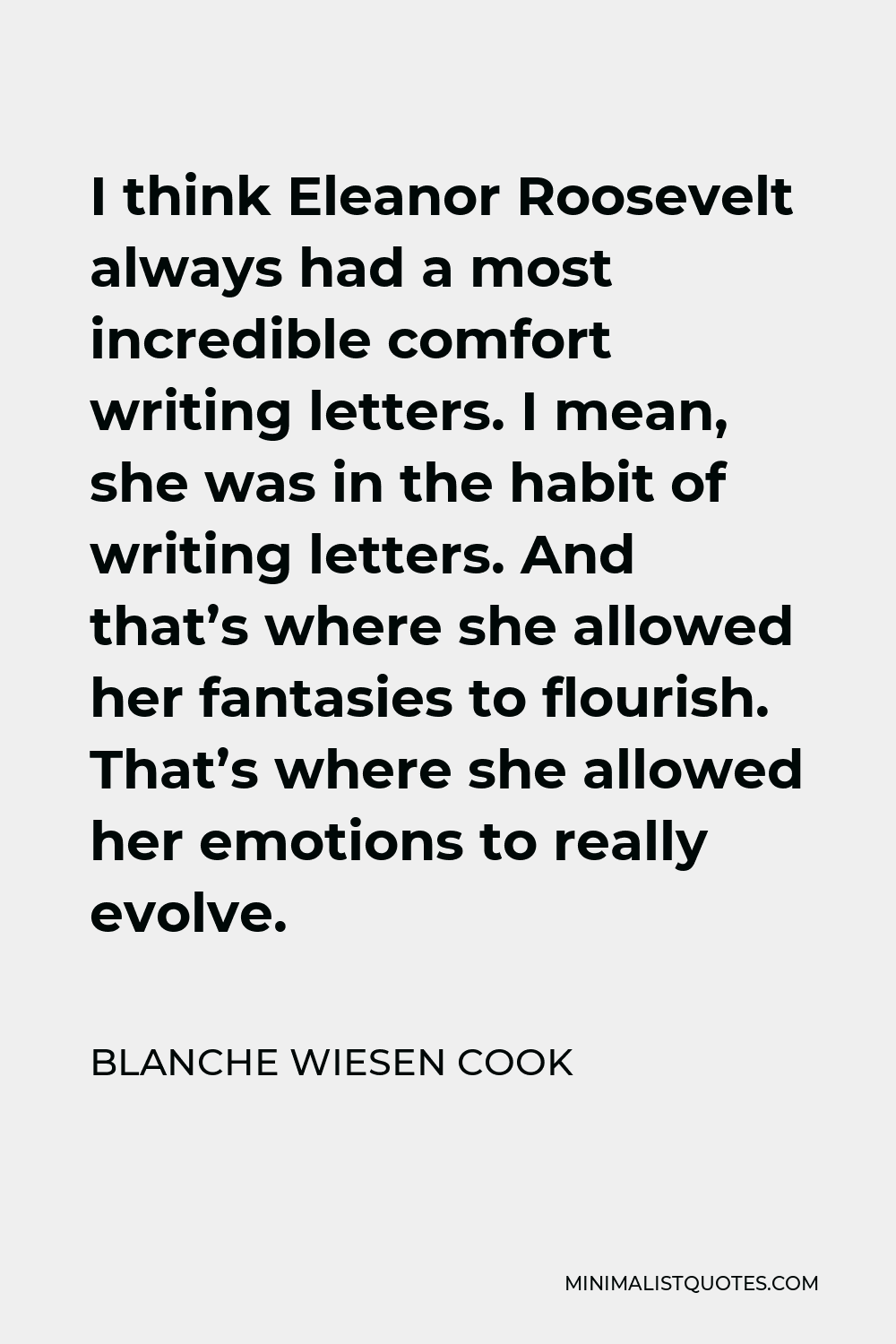Eleanor Roosevelt loved to write. She was a wonderful child writer. I mean, she wrote beautiful essays and stories as a child. And Marie Souvestre really appreciated Eleanor Roosevelt’s talents and encouraged her talents.
BLANCHE WIESEN COOKI think Eleanor Roosevelt always had a most incredible comfort writing letters. I mean, she was in the habit of writing letters. And that’s where she allowed her fantasies to flourish. That’s where she allowed her emotions to really evolve.
More Blanche Wiesen Cook Quotes
-





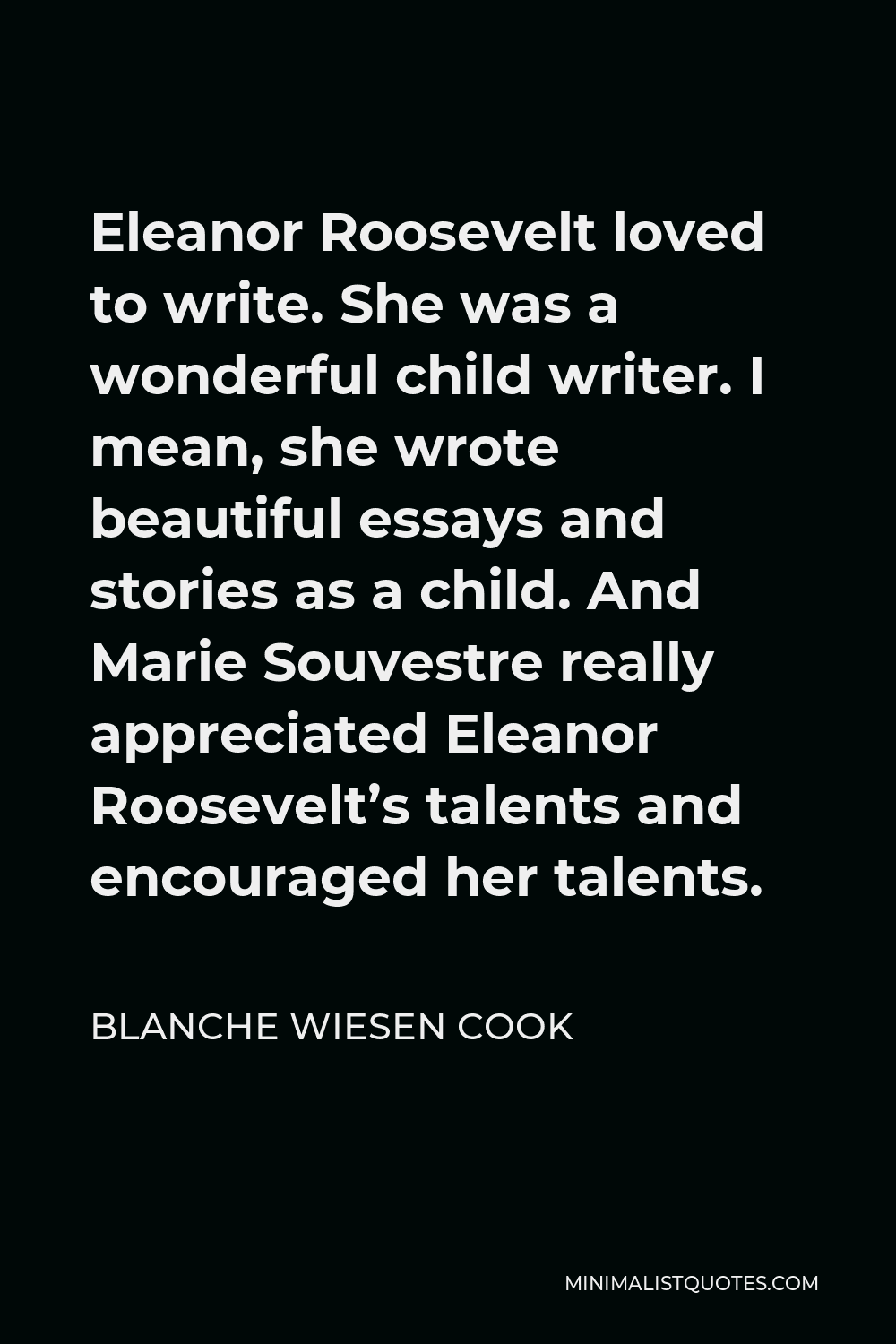
-





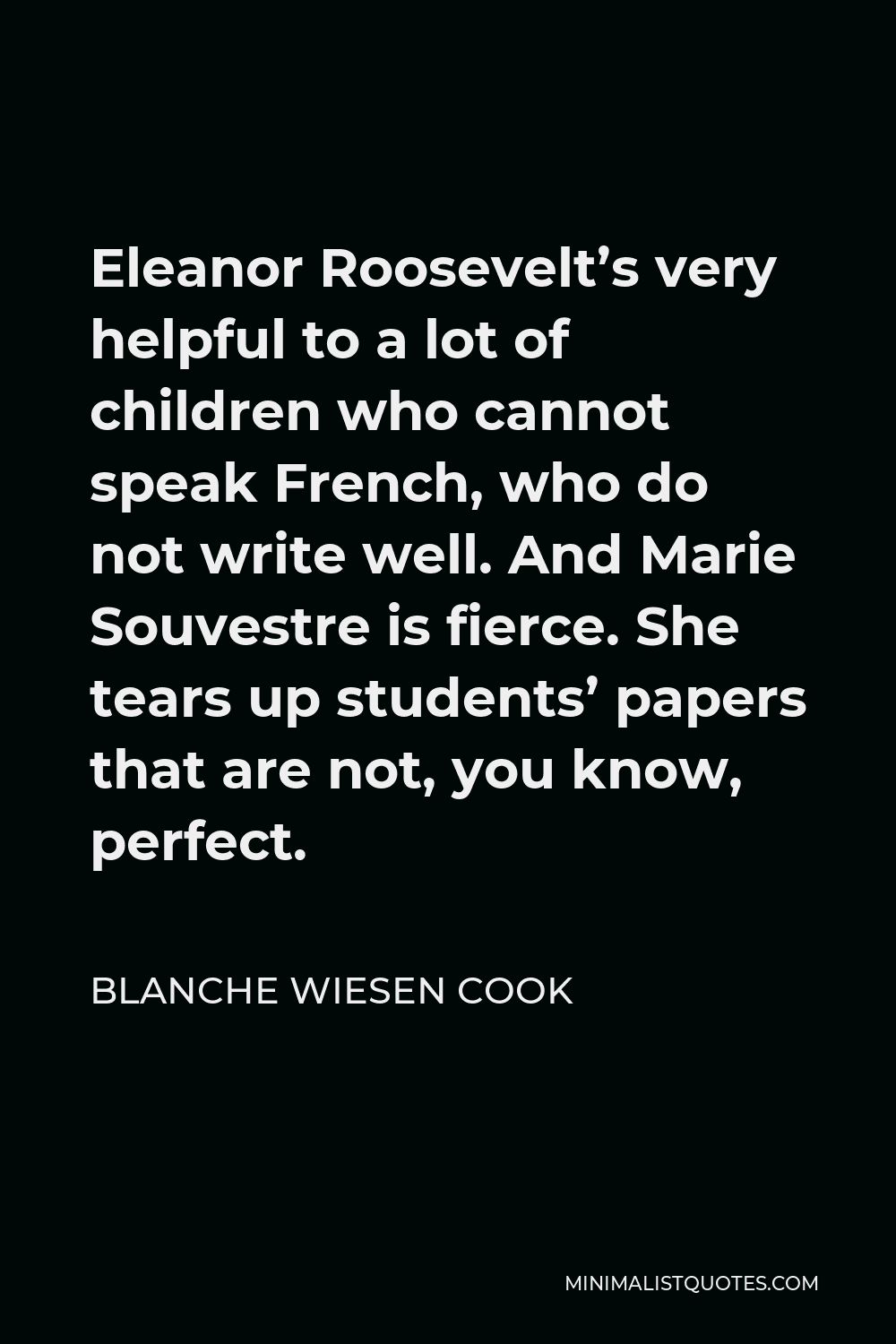
Eleanor Roosevelt’s very helpful to a lot of children who cannot speak French, who do not write well. And Marie Souvestre is fierce. She tears up students’ papers that are not, you know, perfect.
BLANCHE WIESEN COOK -





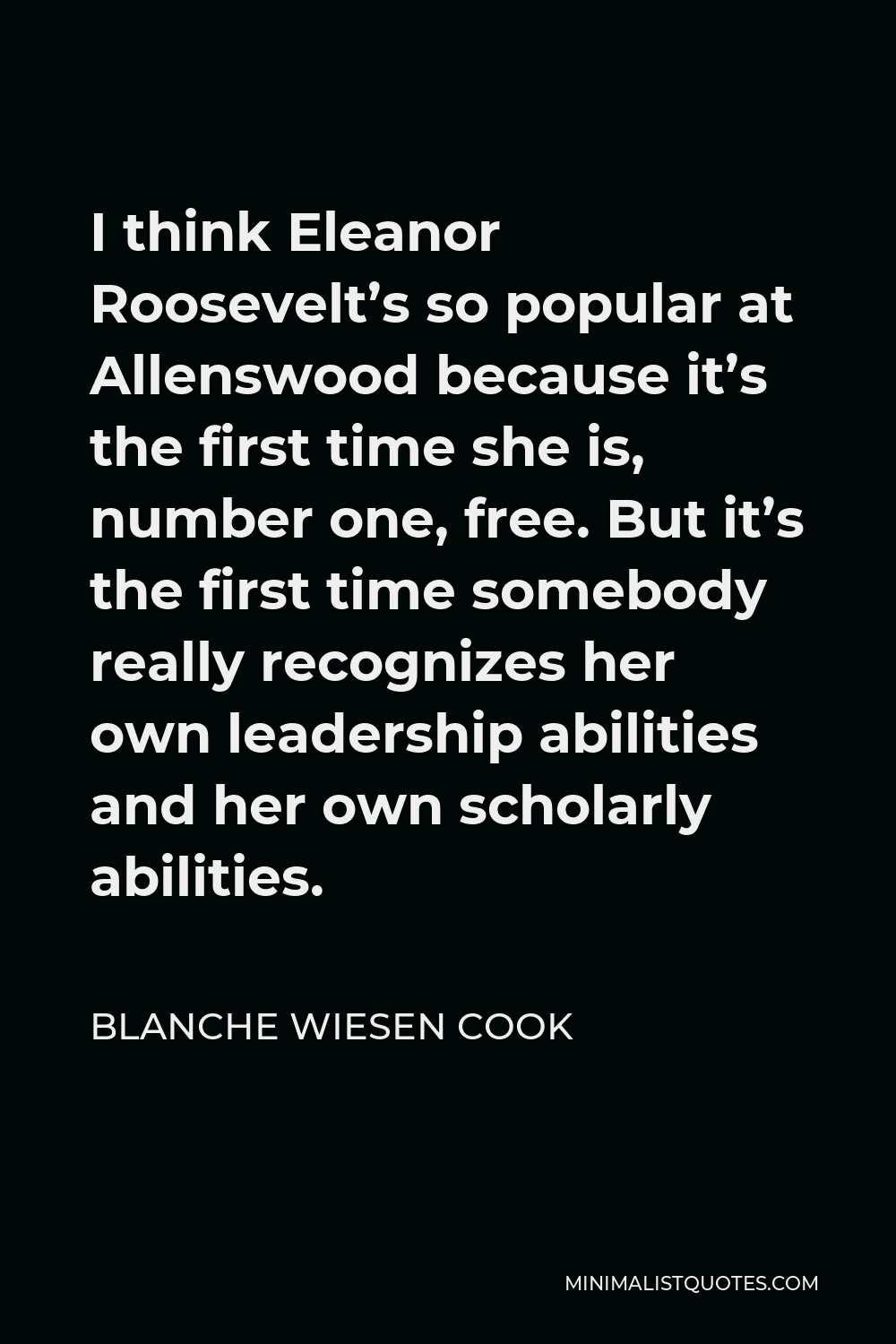
I think Eleanor Roosevelt’s so popular at Allenswood because it’s the first time she is, number one, free. But it’s the first time somebody really recognizes her own leadership abilities and her own scholarly abilities.
BLANCHE WIESEN COOK -





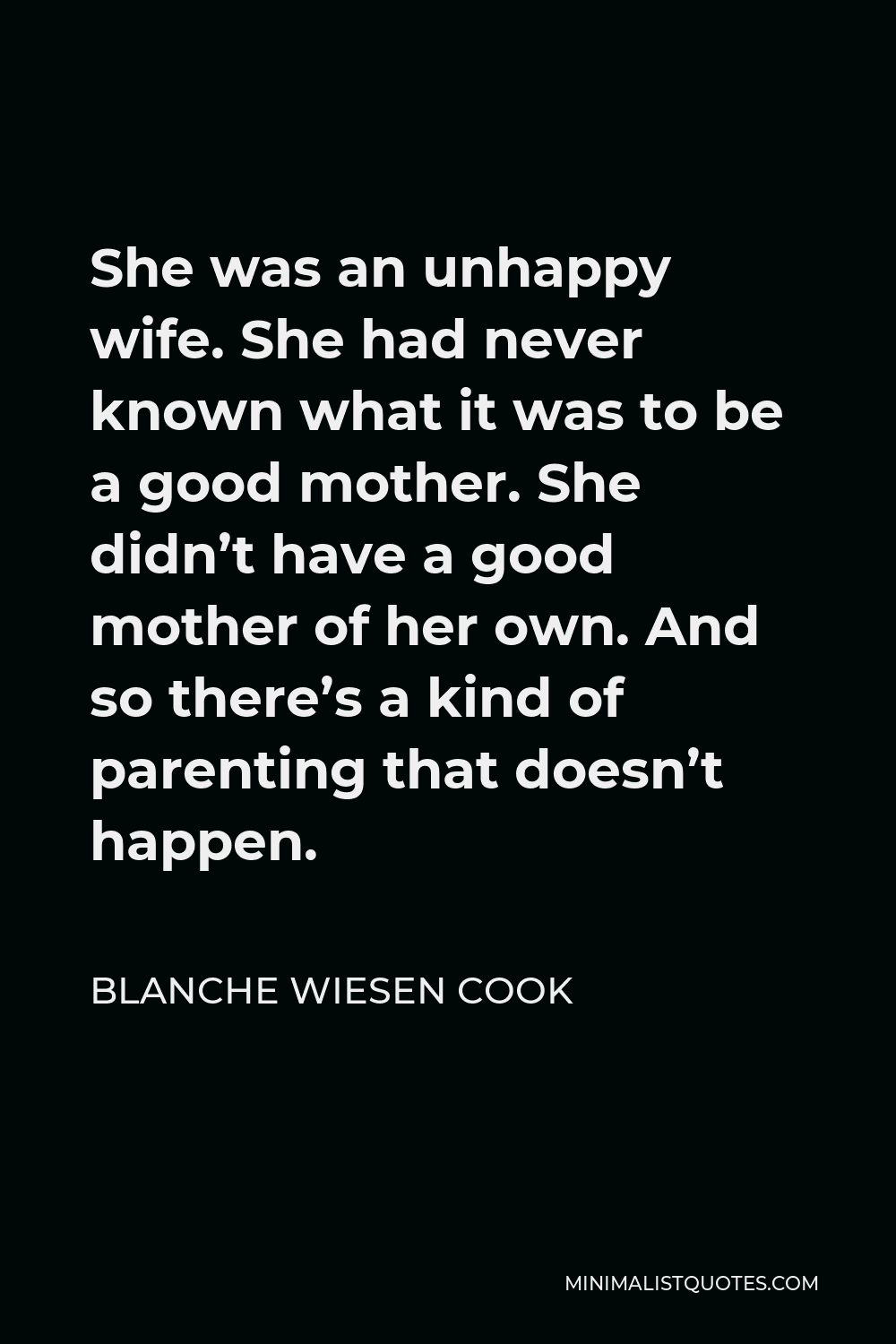
She was an unhappy wife. She had never known what it was to be a good mother. She didn’t have a good mother of her own. And so there’s a kind of parenting that doesn’t happen.
BLANCHE WIESEN COOK -





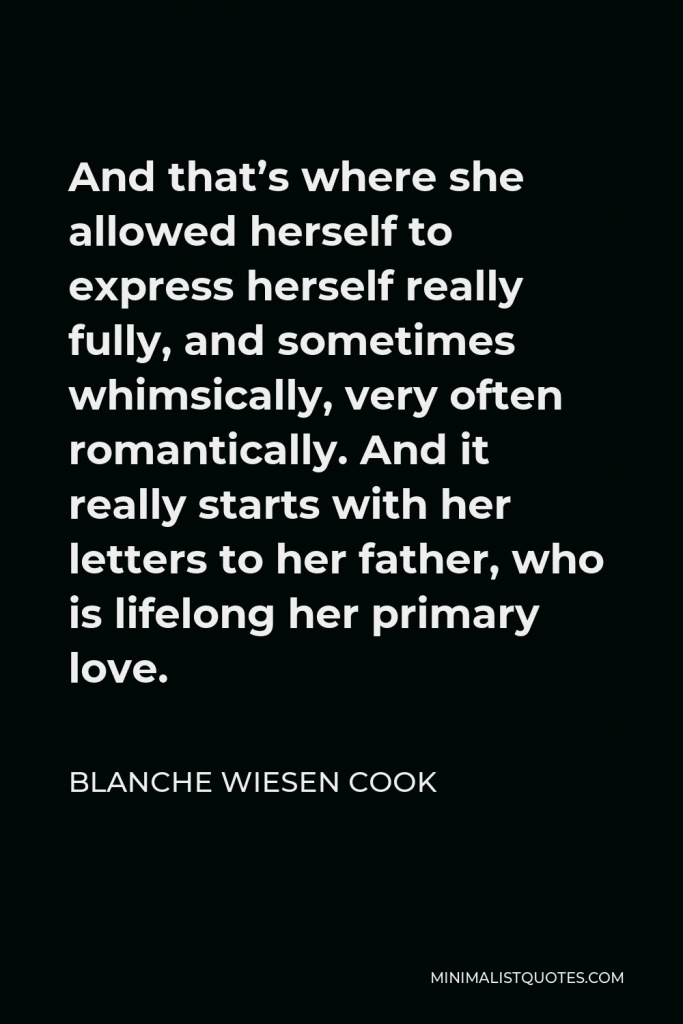

And that’s where she allowed herself to express herself really fully, and sometimes whimsically, very often romantically. And it really starts with her letters to her father, who is lifelong her primary love.
BLANCHE WIESEN COOK -





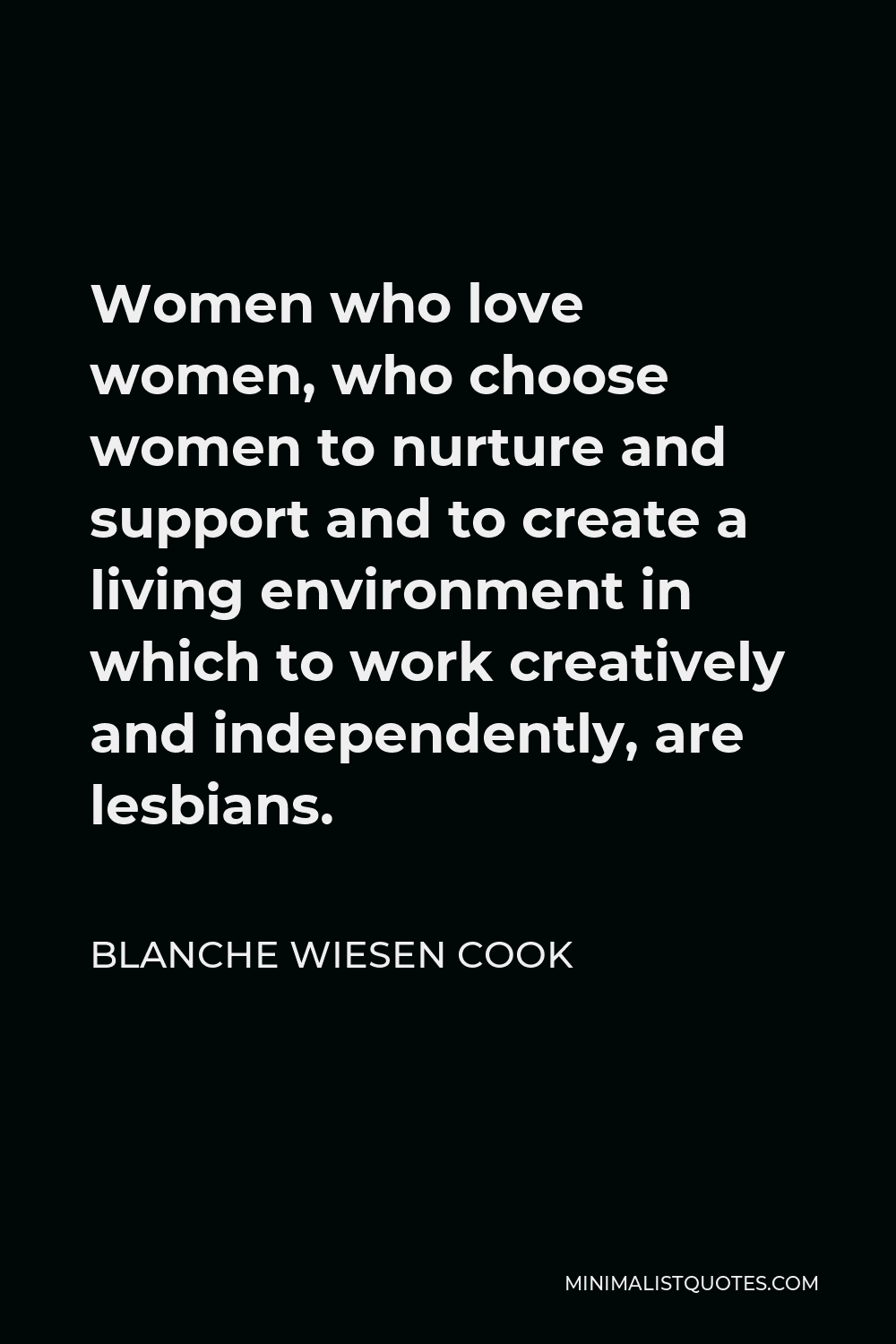
Women who love women, who choose women to nurture and support and to create a living environment in which to work creatively and independently, are lesbians.
BLANCHE WIESEN COOK -





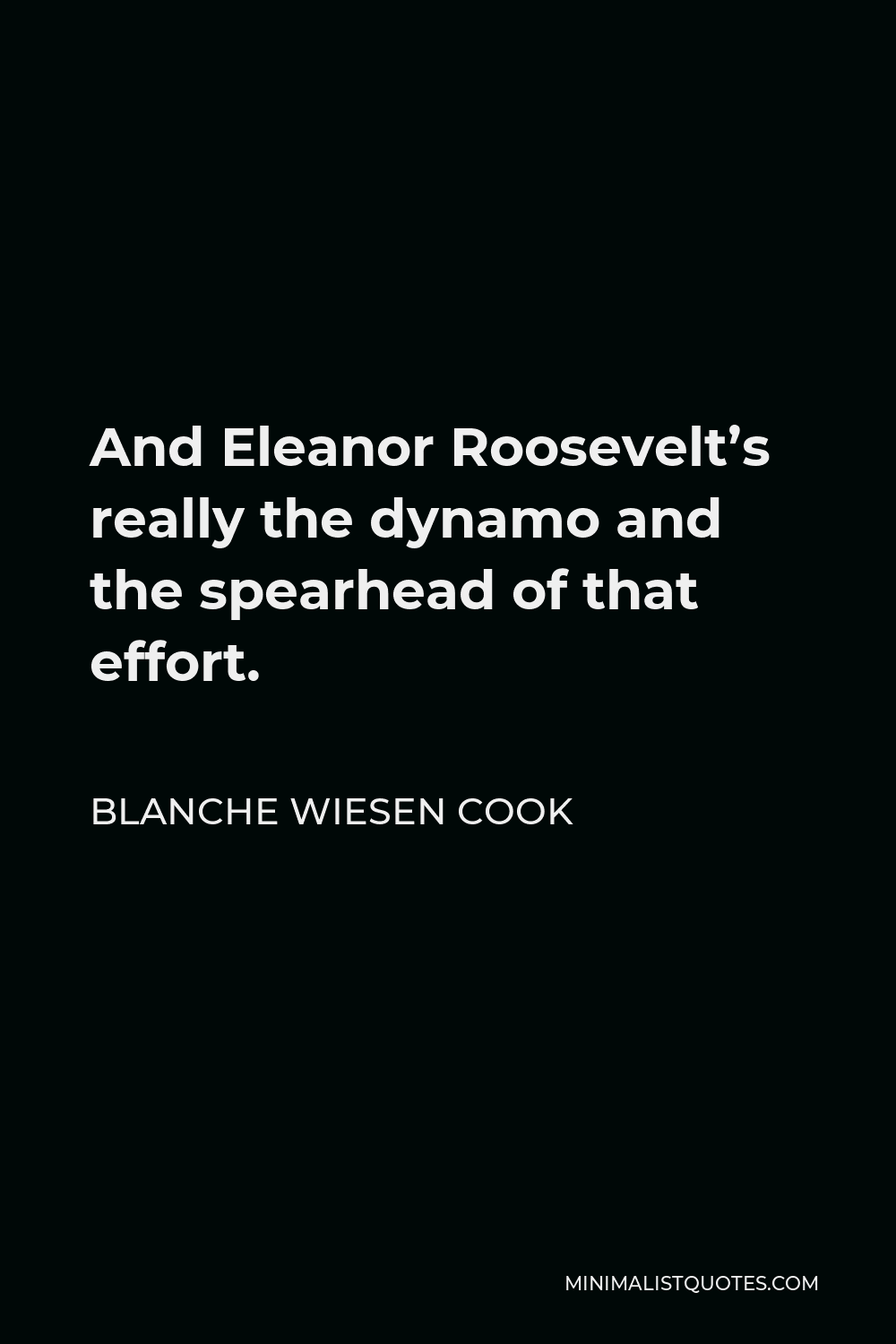
And Eleanor Roosevelt’s really the dynamo and the spearhead of that effort.
BLANCHE WIESEN COOK -





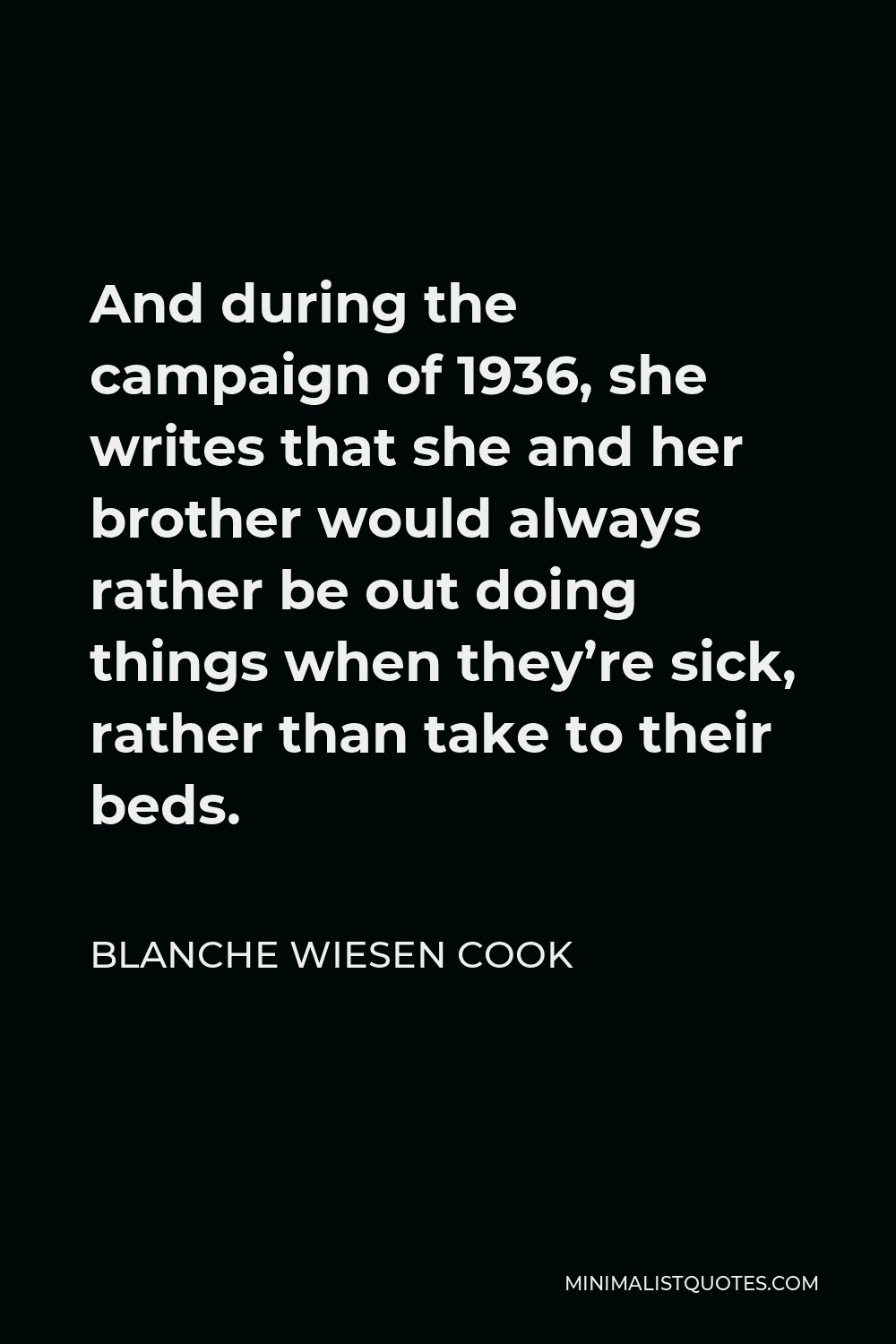
And during the campaign of 1936, she writes that she and her brother would always rather be out doing things when they’re sick, rather than take to their beds.
BLANCHE WIESEN COOK -





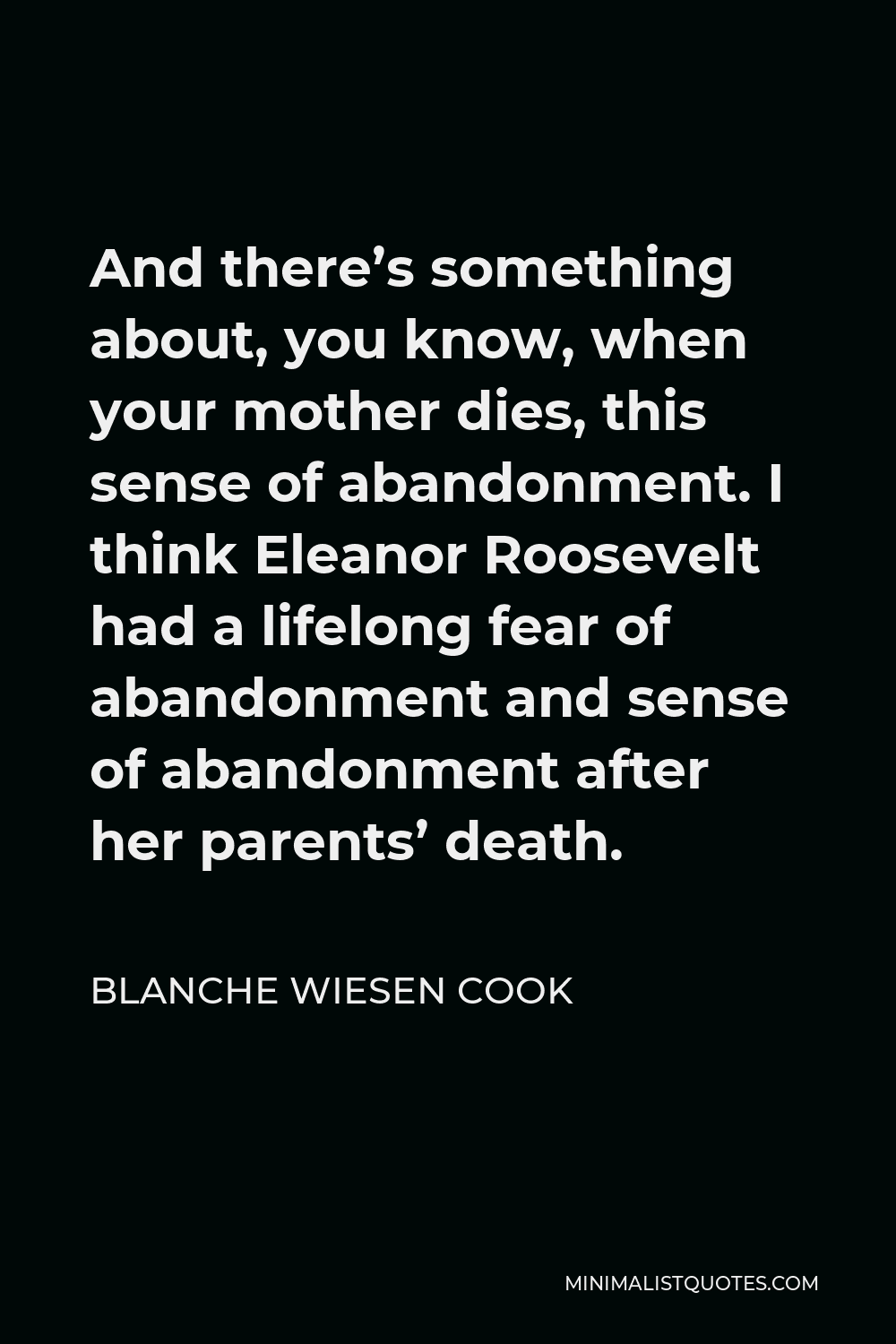
And there’s something about, you know, when your mother dies, this sense of abandonment. I think Eleanor Roosevelt had a lifelong fear of abandonment and sense of abandonment after her parents’ death.
BLANCHE WIESEN COOK -





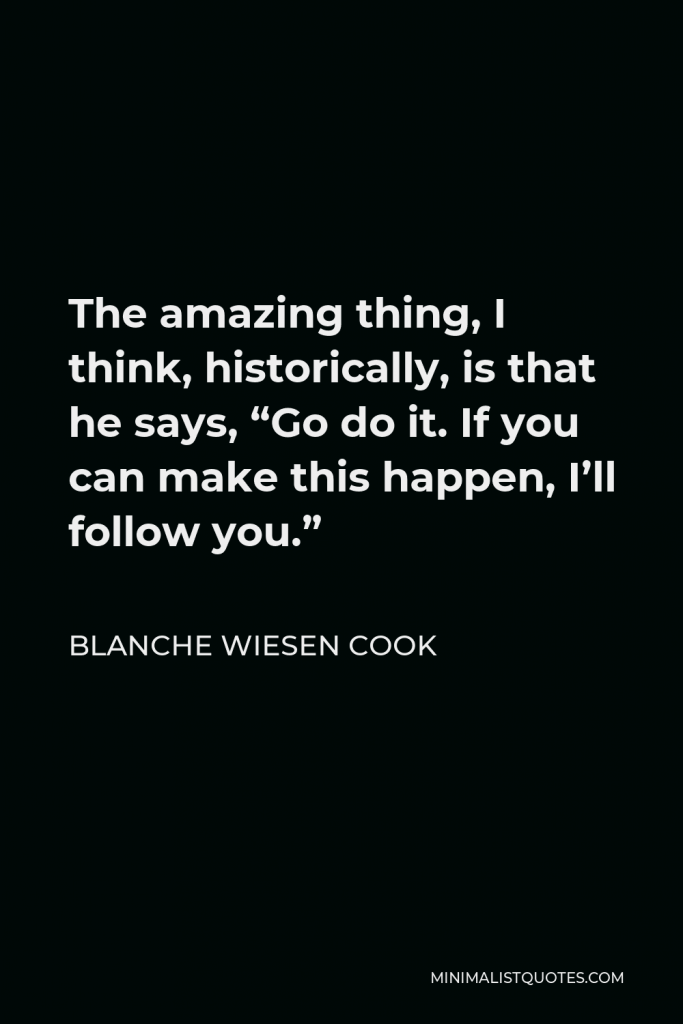

The amazing thing, I think, historically, is that he says, “Go do it. If you can make this happen, I’ll follow you.”
BLANCHE WIESEN COOK -





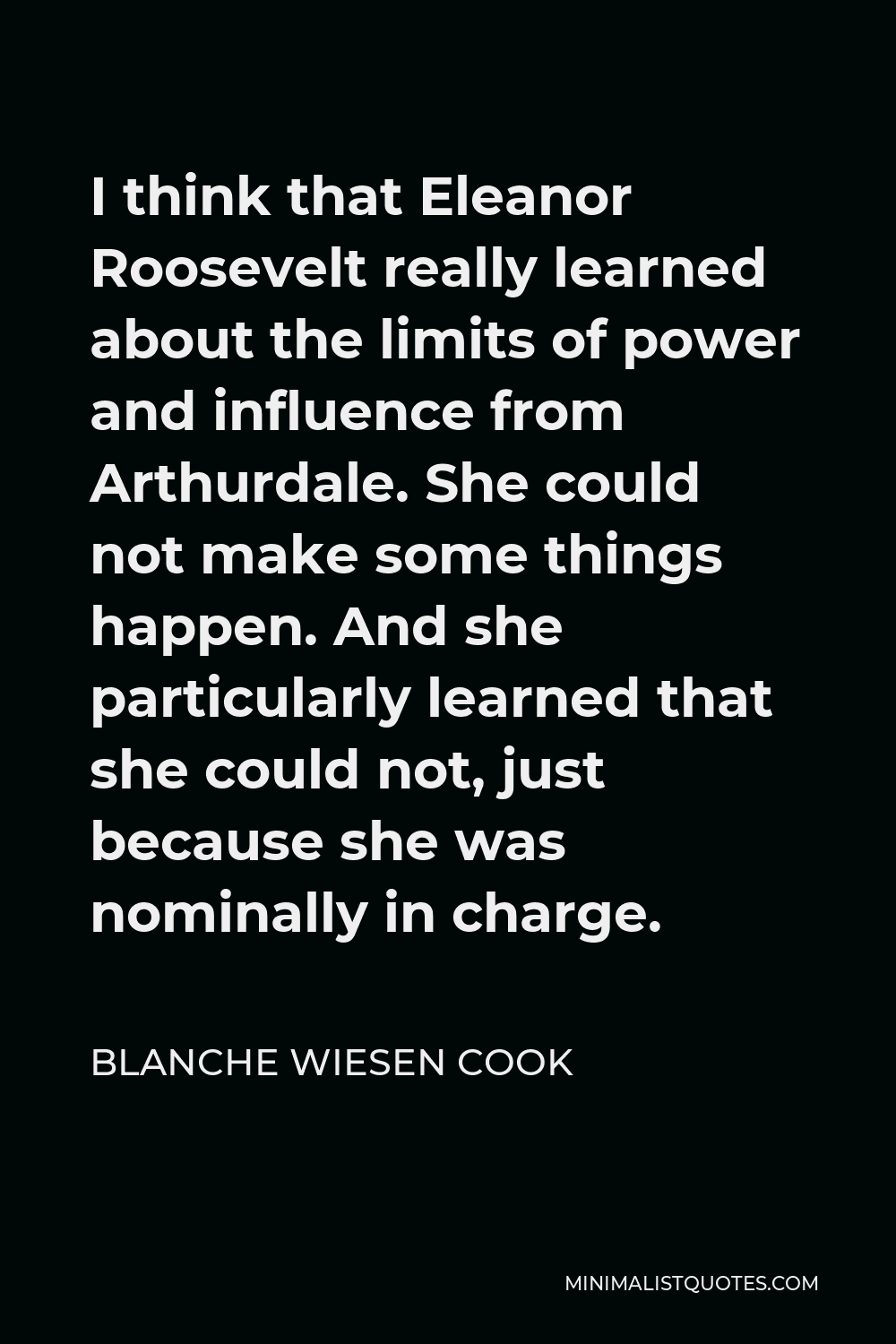
I think that Eleanor Roosevelt really learned about the limits of power and influence from Arthurdale. She could not make some things happen. And she particularly learned that she could not, just because she was nominally in charge.
BLANCHE WIESEN COOK -





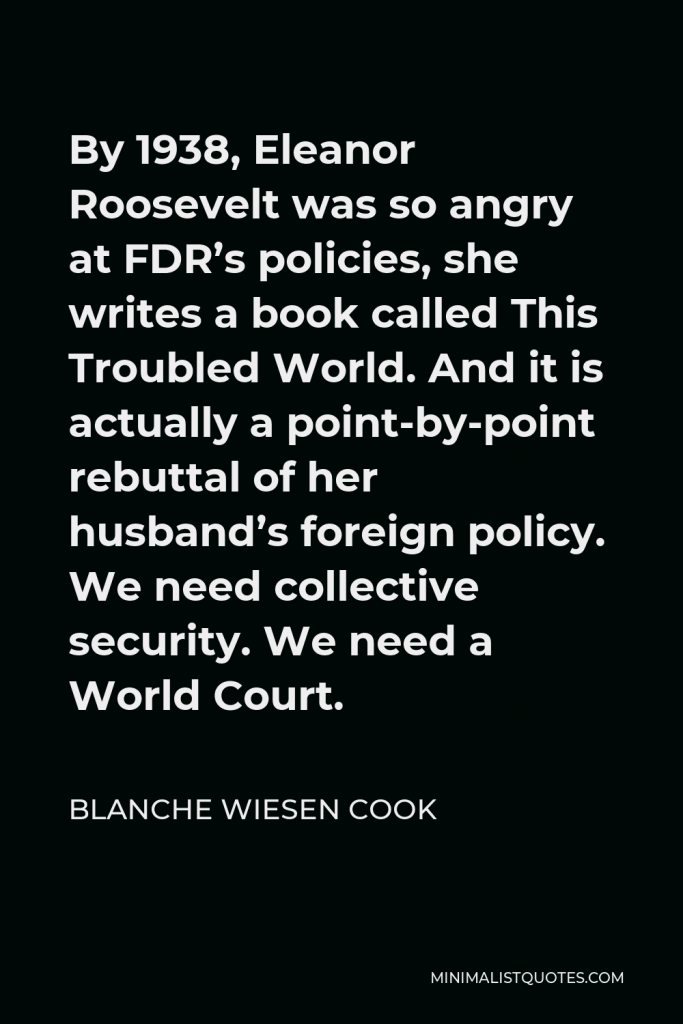

By 1938, Eleanor Roosevelt was so angry at FDR’s policies, she writes a book called This Troubled World. And it is actually a point-by-point rebuttal of her husband’s foreign policy. We need collective security. We need a World Court.
BLANCHE WIESEN COOK -







He loved to sing. He loved to have fun. And he wrote beautiful letters, just as her father did, which – alas and alack – Eleanor Roosevelt destroyed. But she refers to his beautiful letters. And she was charmed by him.
BLANCHE WIESEN COOK -





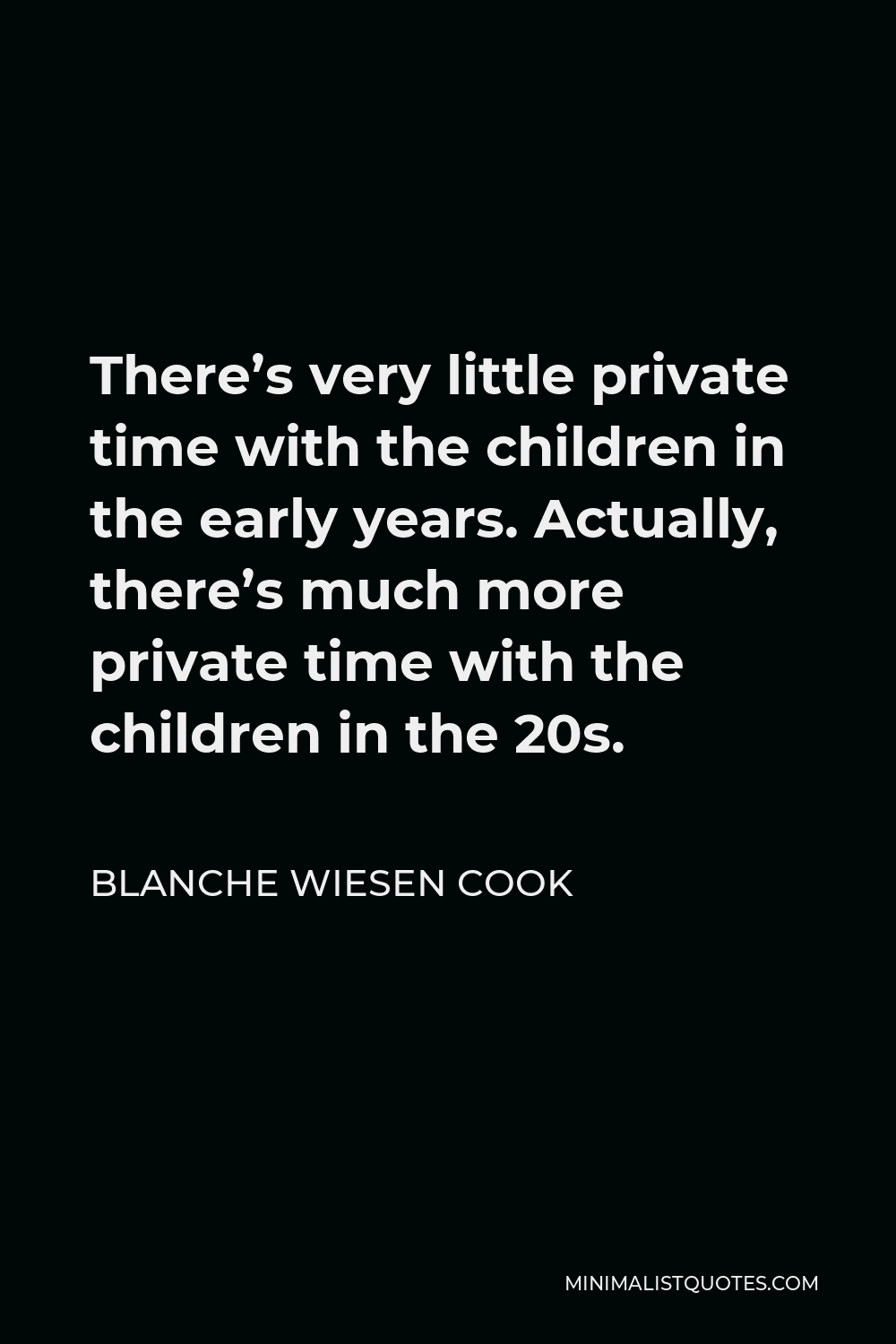
There’s very little private time with the children in the early years. Actually, there’s much more private time with the children in the 20s.
BLANCHE WIESEN COOK -





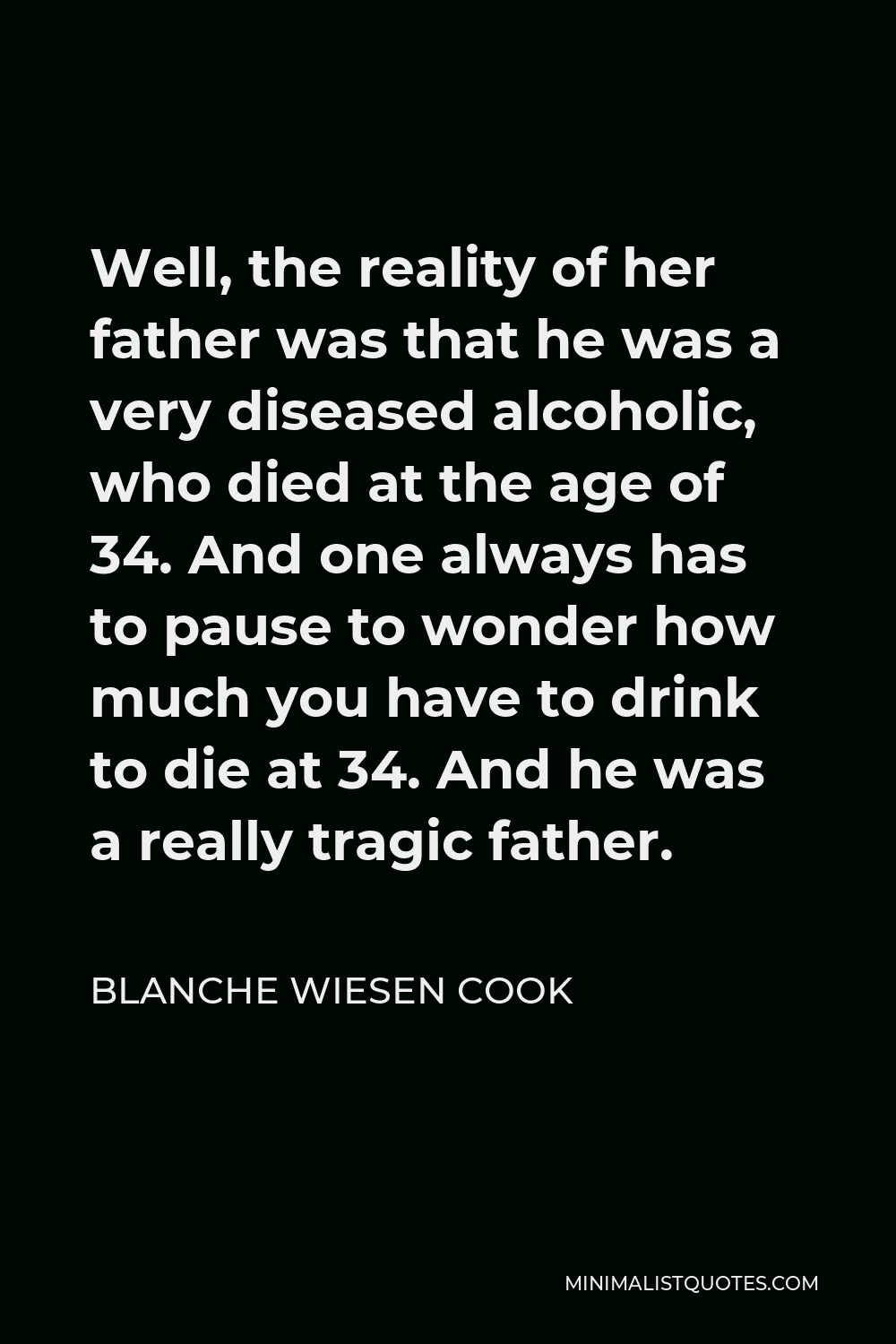
Well, the reality of her father was that he was a very diseased alcoholic, who died at the age of 34. And one always has to pause to wonder how much you have to drink to die at 34. And he was a really tragic father.
BLANCHE WIESEN COOK -





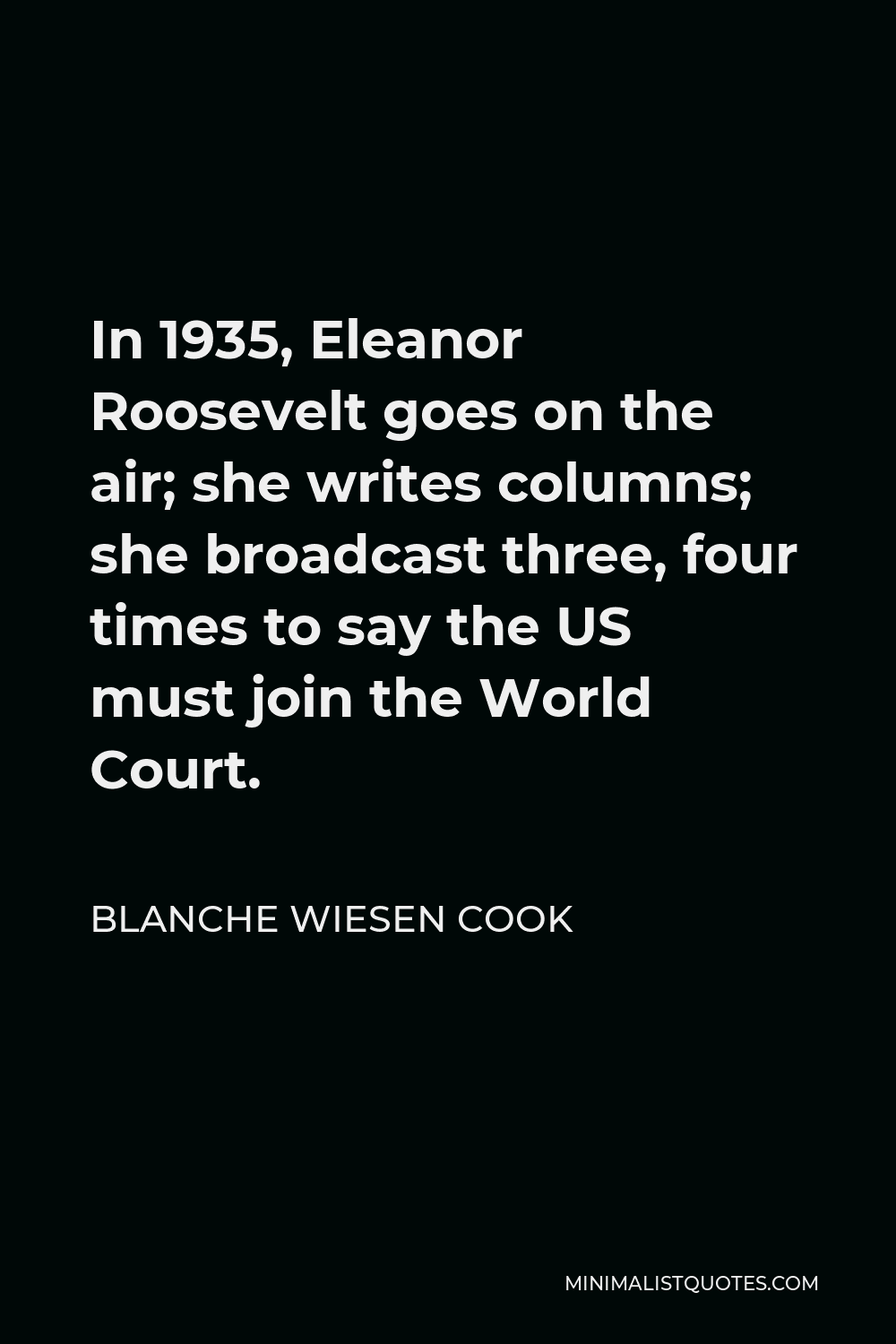
In 1935, Eleanor Roosevelt goes on the air; she writes columns; she broadcast three, four times to say the US must join the World Court.
BLANCHE WIESEN COOK
